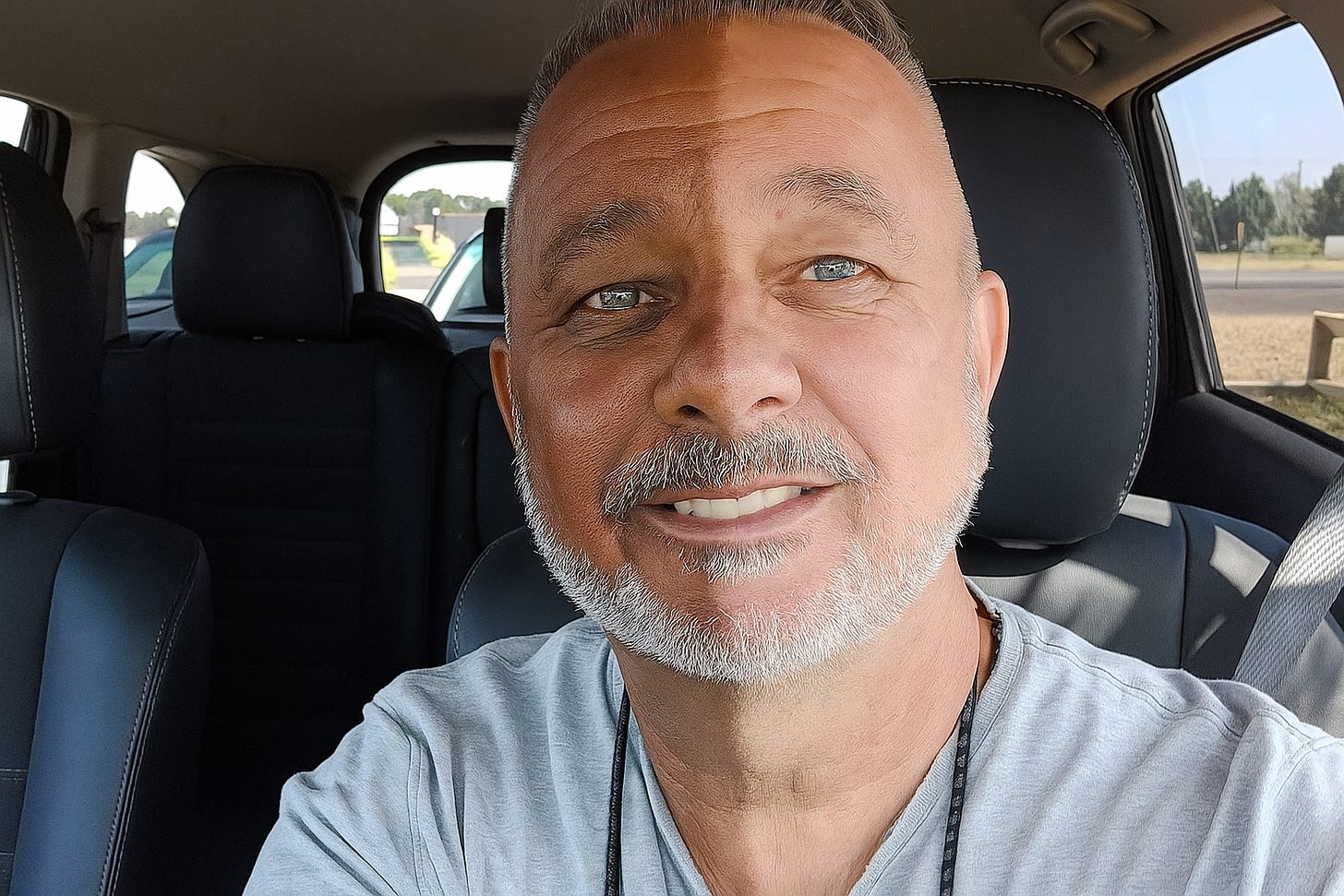When I Was Told I Didn’t Get It
I think racism is often something we create by constantly bringing it up, on a personal level, anyway.
As a kid, I never thought about someone’s skin color until someone told me it was supposed to mean something. I just saw people. Friends. Faces. Who they were, how they talked, what they were into. That was the lens. I didn’t look for differences until someone told me I was supposed to.
I’ve had girlfriends who happened to be black, dated an Egyptian woman when I lived in Cairo, a Canadian when I was in Saudi Arabia, and gone out with women from Asia while I was working in Kuwait. None of those relationships felt “cross-cultural” at the time. They were just people I cared about. I didn’t keep score. I didn’t think in categories.
I didn’t grow up in the U.S. I grew up in Germany. My mother was German, and my dad was American. Our world was more about ideas, questions, grace, and what it meant to belong in places you weren’t born to. Later, I worked across the Middle East, living in cultures where I was the foreigner.
By the time I found myself volunteering with the Free Burma Rangers—helping the Karen villagers get medical care across the Thai border—I was used to being the outsider. I was fine with it.
Then came Sarah.
She was a white American, in her late 20s, maybe 30, who called herself a human rights advocate. One afternoon, out of nowhere, she told me I didn’t understand racial injustice.
“You have no idea what Black Americans go through,” she said. “You should listen to more rap music.”
She didn’t ask where I came from. Didn’t ask what I’d lived through. Didn’t care who I’d loved, or how many years I’d spent outside the country, she assumed I was born to understand.
She never called me a racist—not directly. But the message was clear.
After that, she wouldn’t speak to me. Wouldn’t make eye contact. Just moved on, like I wasn’t worth her time.
I wasn’t angry. Not then. I was stunned.
Not because I think racism isn’t real. It is. But because she wasn’t interested in nuance. She didn’t want a conversation. She just wanted a category. I happened to fit one she didn’t like.
And I’ve been seeing that same energy more and more.
People bring up race, gender, age, identity—not to understand, but to accuse. To perform. To gain some kind of moral ground by putting someone else beneath them. It’s not a conversation. It’s a setup.
And the irony? It’s all done in the name of inclusion.
But it doesn’t feel inclusive. It feels like people are scanning for missteps. Waiting for a reason to cancel, correct, or call out. There’s no space to be human. No grace for complexity.
I didn’t grow up in this version of Life. I didn’t learn to see people through that lens. I lived in places where difference—real difference—was part of everyday life. Where you had to adapt. Had to listen. Had to learn people, not label them.
What’s happening now?
It feels hollow. Defensive. Exhausting.
Not justice.
Not growth.
Just fear wearing a progressive mask.
And yeah, it makes me quieter.
Not because I have nothing to say—
But because I’m tired of the games.
I may not fully understand what someone of another race, gender, sexual orientation, or age goes through.
But it’s never been about the label for me. It’s always been about the person.
Who they are.
What they’ve lived.
How they treat others.
That’s where connection happens—or it doesn’t.
Back in high school, I listened to Wilson Pickett and The Temptations. Grand Funk Railroad. Robin Trower. Undisputed Truth. I didn’t listen to music to “diversify.” I listened to what moved me. What had soul. What said something real.
Now? I’ve got Vietnamese and Korean EDM on rotation. Algerian raï. Rap from Kosovo, Albania. Middle Eastern hip hop. I still follow voices from the edges. Stories that rise out of pressure, pain, survival, hope. That’s how I connect. That’s how I listen.
It’s not about where you’re from.
It’s about what you carry.
Sarah couldn’t see that.
Maybe she didn’t want to.
I didn’t say anything to her then.
Didn’t defend myself.
Didn’t try to explain.
But looking back?
I don’t think she was listening anyway.
And yeah—part of me still wants to say it:
Fuck you, Sarah.
Not because I hate you.
But because you didn’t even try to see me.
You were so busy being right,
you forgot to be human.
That’s the Gotham City truth.


